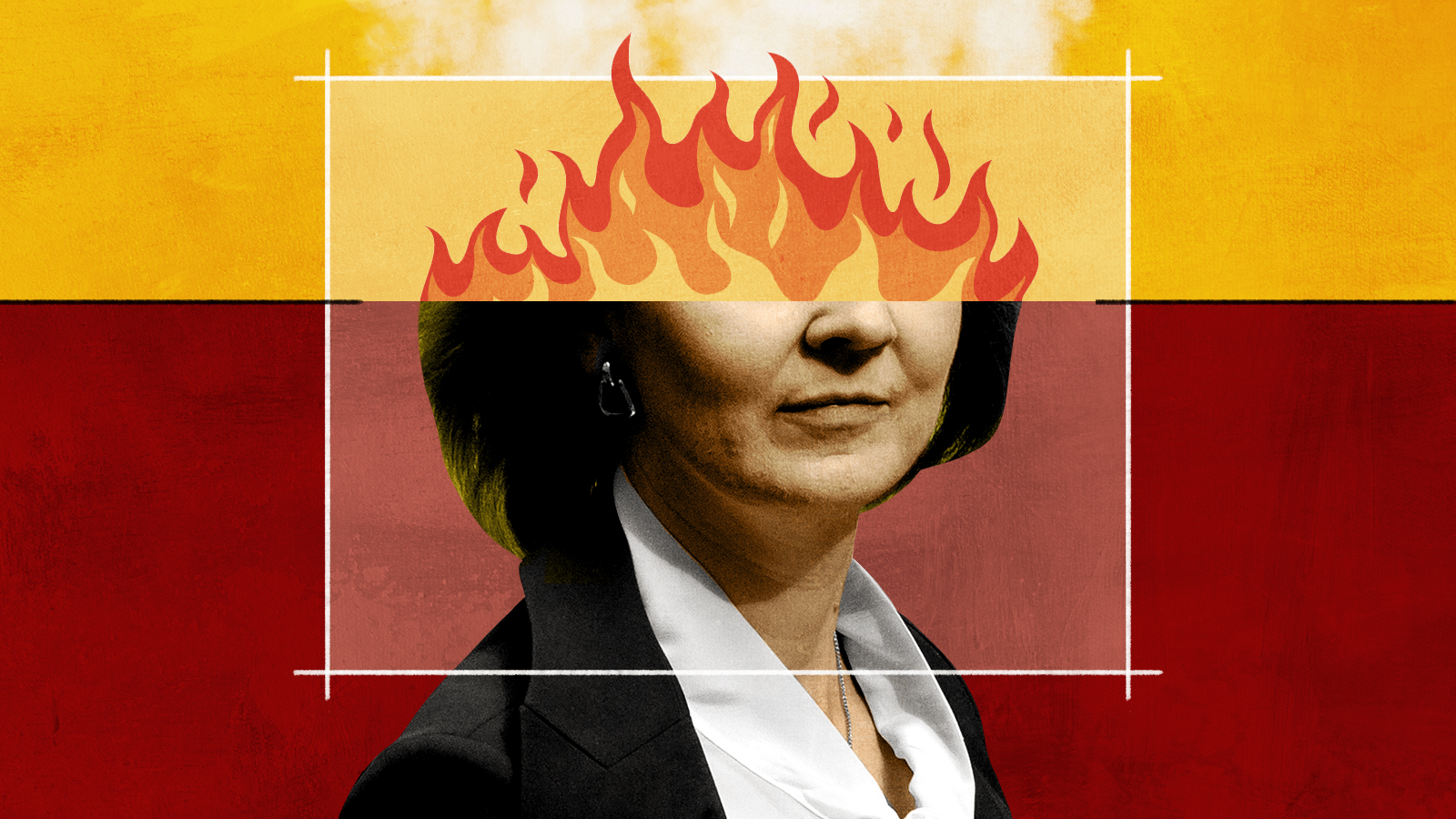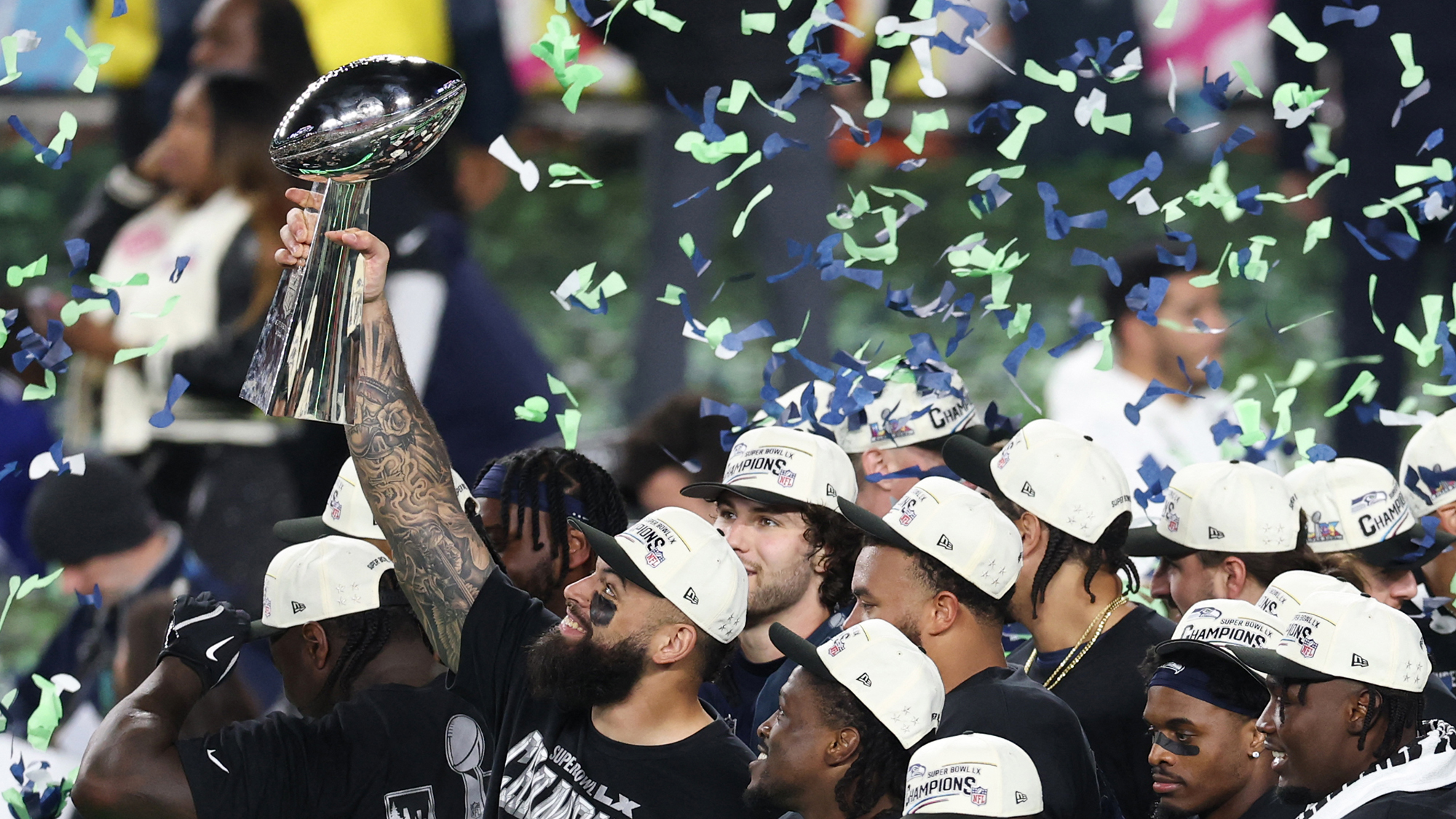How Liz Truss' controversial climate policy is roiling Britain


A free daily email with the biggest news stories of the day – and the best features from TheWeek.com
You are now subscribed
Your newsletter sign-up was successful
British Prime Minister Liz Truss has had a whirlwind of a start to her term. Elected by her Conservative Party, not in a general election, Truss' economic proposals quickly sent British markets reeling, but her climate policy has also attracted controversy and drawn out a number of eco-protesters. At a time when Europe is facing an energy crisis and just ended its hottest summer on record, taking climate action has become a top priority both for Europe and the world. Here's everything you need to know about Liz Truss' controversial climate policy:
What is Truss' platform on climate?
Even before Truss assumed the position of prime minister, she wasn't exactly known as an environmentalist. She pledged during her leadership campaign to move the U.K. closer to United Nations net-zero carbon emission goals by 2050, but other pieces of her platform are contradictory. Many of her policies encourage the use of fossil fuels and make it difficult to expand renewable sources of energy.
For example, Truss has pledged to suspend the U.K.'s "green levy," which is a system where a portion of people's energy bills go to fund green energy projects, BBC News reports. The charges currently make up about 8 percent of a typical energy bill, and Truss says suspending the tax would reduce energy bills as gas and oil prices soar due to Russia's invasion of Ukraine and OPEC+ production cuts. Many experts counter that that green projects can curb the cost of energy and that just removing the levy would not decrease bills by much.
The Week
Escape your echo chamber. Get the facts behind the news, plus analysis from multiple perspectives.

Sign up for The Week's Free Newsletters
From our morning news briefing to a weekly Good News Newsletter, get the best of The Week delivered directly to your inbox.
From our morning news briefing to a weekly Good News Newsletter, get the best of The Week delivered directly to your inbox.
Drill, Britain, drill?
Truss also lifted a 2019 moratorium on fracking. In her first speech as prime minister, she said lifting the ban "could get gas flowing in as soon as six months, where there is local support."
Lifting the ban was controversial in Britain, where polls show that only about 27 percent of the public supports fracking, CNBC reports. During a speech about how her policies will encourage growth, Truss was interrupted by two members of Greenpeace, an environmental nonprofit, holding a sign saying reading, "Who voted for this?" Truss had security escort them out and then called them part of the "anti-growth coalition," Politico reports.
Truss has also announced new North Sea oil and gas licenses, pitching the future increase of domestic production as a way to "reduce reliance on authoritarian regimes." The U.K.'s National Grid has warned of potential rolling blackouts if Britain runs short on gas this winter.
Truss has also sparked concern with her Cabinet picks. Despite saying she will aid in the net-zero goal by 2050, her two main Cabinet picks that would be working on that goal are vocal climate change skeptics.
A free daily email with the biggest news stories of the day – and the best features from TheWeek.com
Jacob Rees-Mogg, the business secretary, has advocated for extracting "every last drop" of North Sea oil and has voiced his doubts about climate science. Ranil Jayawardena, the environment secretary, has dismissed the idea of more solar farms in the countryside. He has noted the potential for wind energy, but neither he, Truss, or Rees-Mogg have jumped at the opportunity to expand it, BBC News reports.
How do her policies compare to other countries?
Overall, Western Europe has seen quite a rightward shift in leadership, and several major countries have similarly eased their ambitious climate goals. Italy elected far-right leader Giorgia Meloni, for example, and the Sweden Democrats, a party based on neo-fascist roots, placed second in September elections. France's far-right leader Marine Le Pen came within striking distance of unseating President Emmanuel Macron. With conservative leaders come conservative climate policies.
An analysis done by the Italian Climate Network found that Meloni's administration scored low in moving away from fossil fuels and environmentalist ambition, for example. Meloni and her party, Brothers of Italy — also with neo-fascist roots — have proposed increasing domestic natural gas production, and renewables are absent in their agenda. The Sweden Democrats have promised to cut gas prices and call the Swedish emissions targets too ambitious, Politico notes.
France's Macron, on the other hand, has been a climate advocate. In last week's inaugural European Political Community meeting in Prague, Macron openly dismissed the construction of the giant MidCat pipeline, a proposed conduit that would bring gas from Spain to Germany and the rest of Europe. He also opened France's first offshore wind farm amid the energy crisis.
What does Truss' climate shift mean for Britain?
Former Prime Minister Boris Johnson, Truss' Conservative predecessor, set tough climate goals after having a change of heart. He talked enthusiastically about the economic opportunities of clean energy at COP26, even though Britain's Conservatives were already eyeing a new leader. Johnson left behind a lot of unfinished climate business that will languish under Truss' leadership, Politico explains.
Truss never hid skepticism about the net-zero pledge even as she campaigned on pushing toward that goal. And she hasn't been ambitious about keeping the pledge. Instead, there has also been confusion as to who will attend the COP27 Summit in Egypt this November.
King Charles III had been set to attend the climate conference before his accession to the throne, but Truss quickly advised him to cancel his plans. The new king has been a long-standing environmental activist and made a speech at COP26 last year in Glasgow. Instead, Truss herself and climate skeptic Rees-Mogg will reportedly attend the summit, The Guardian reports.
"There was a broad sense that we were reflecting [at COP26] the kind of country we want ourselves to be," says Alok Sharma, the Tory Cabinet minister who served as president of last year's COP26 summit. "This government is now betraying all of that."
Devika Rao has worked as a staff writer at The Week since 2022, covering science, the environment, climate and business. She previously worked as a policy associate for a nonprofit organization advocating for environmental action from a business perspective.
-
 Hong Kong jails democracy advocate Jimmy Lai
Hong Kong jails democracy advocate Jimmy LaiSpeed Read The former media tycoon was sentenced to 20 years in prison
-
 Japan’s Takaichi cements power with snap election win
Japan’s Takaichi cements power with snap election winSpeed Read President Donald Trump congratulated the conservative prime minister
-
 Seahawks trounce Patriots in Super Bowl LX
Seahawks trounce Patriots in Super Bowl LXSpeed Read The Seattle Seahawks won their second Super Bowl against the New England Patriots
-
 The billionaires’ wealth tax: a catastrophe for California?
The billionaires’ wealth tax: a catastrophe for California?Talking Point Peter Thiel and Larry Page preparing to change state residency
-
 Bari Weiss’ ‘60 Minutes’ scandal is about more than one report
Bari Weiss’ ‘60 Minutes’ scandal is about more than one reportIN THE SPOTLIGHT By blocking an approved segment on a controversial prison holding US deportees in El Salvador, the editor-in-chief of CBS News has become the main story
-
 Has Zohran Mamdani shown the Democrats how to win again?
Has Zohran Mamdani shown the Democrats how to win again?Today’s Big Question New York City mayoral election touted as victory for left-wing populists but moderate centrist wins elsewhere present more complex path for Democratic Party
-
 Millions turn out for anti-Trump ‘No Kings’ rallies
Millions turn out for anti-Trump ‘No Kings’ ralliesSpeed Read An estimated 7 million people participated, 2 million more than at the first ‘No Kings’ protest in June
-
 Ghislaine Maxwell: angling for a Trump pardon
Ghislaine Maxwell: angling for a Trump pardonTalking Point Convicted sex trafficker's testimony could shed new light on president's links to Jeffrey Epstein
-
 The last words and final moments of 40 presidents
The last words and final moments of 40 presidentsThe Explainer Some are eloquent quotes worthy of the holders of the highest office in the nation, and others... aren't
-
 The JFK files: the truth at last?
The JFK files: the truth at last?In The Spotlight More than 64,000 previously classified documents relating the 1963 assassination of John F. Kennedy have been released by the Trump administration
-
 'Seriously, not literally': how should the world take Donald Trump?
'Seriously, not literally': how should the world take Donald Trump?Today's big question White House rhetoric and reality look likely to become increasingly blurred
